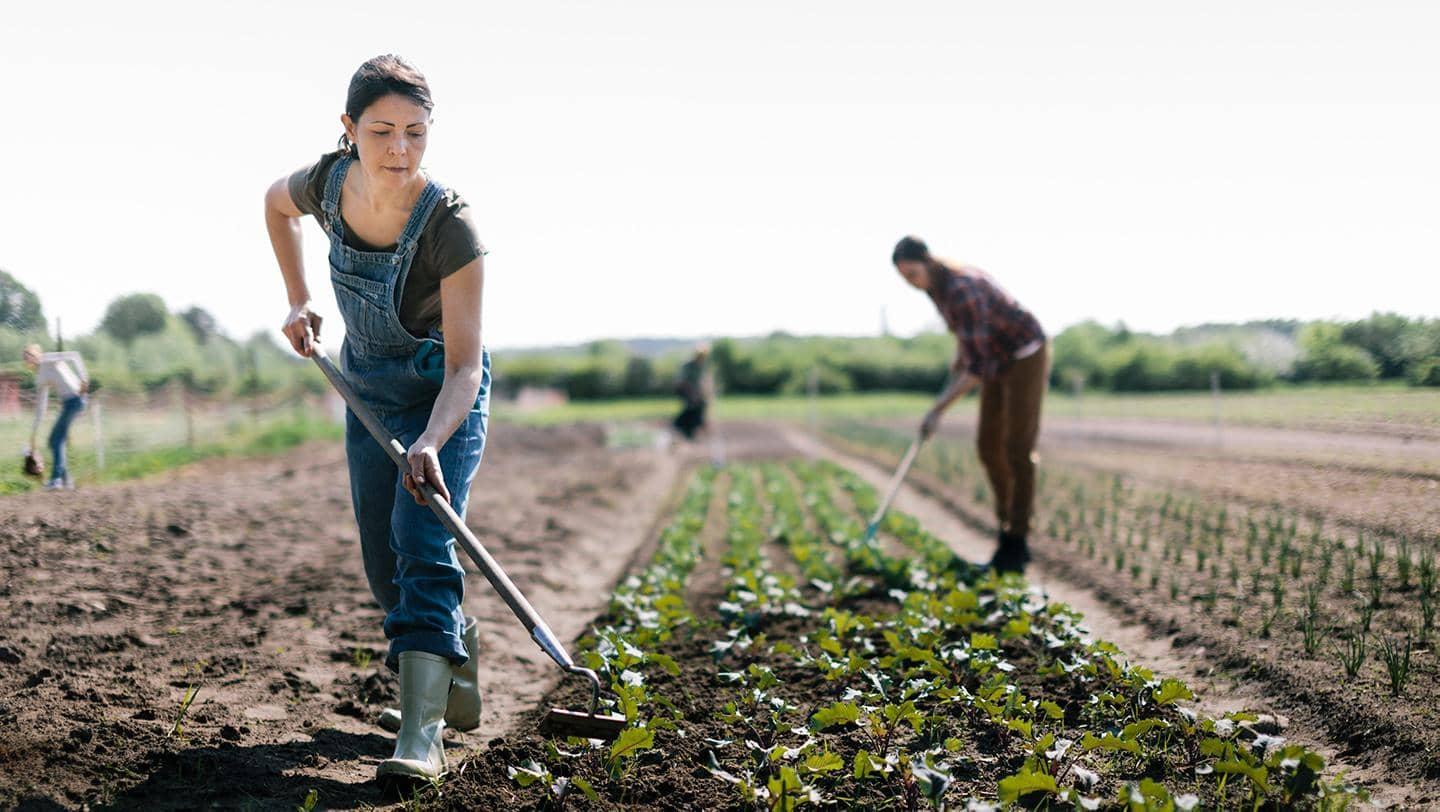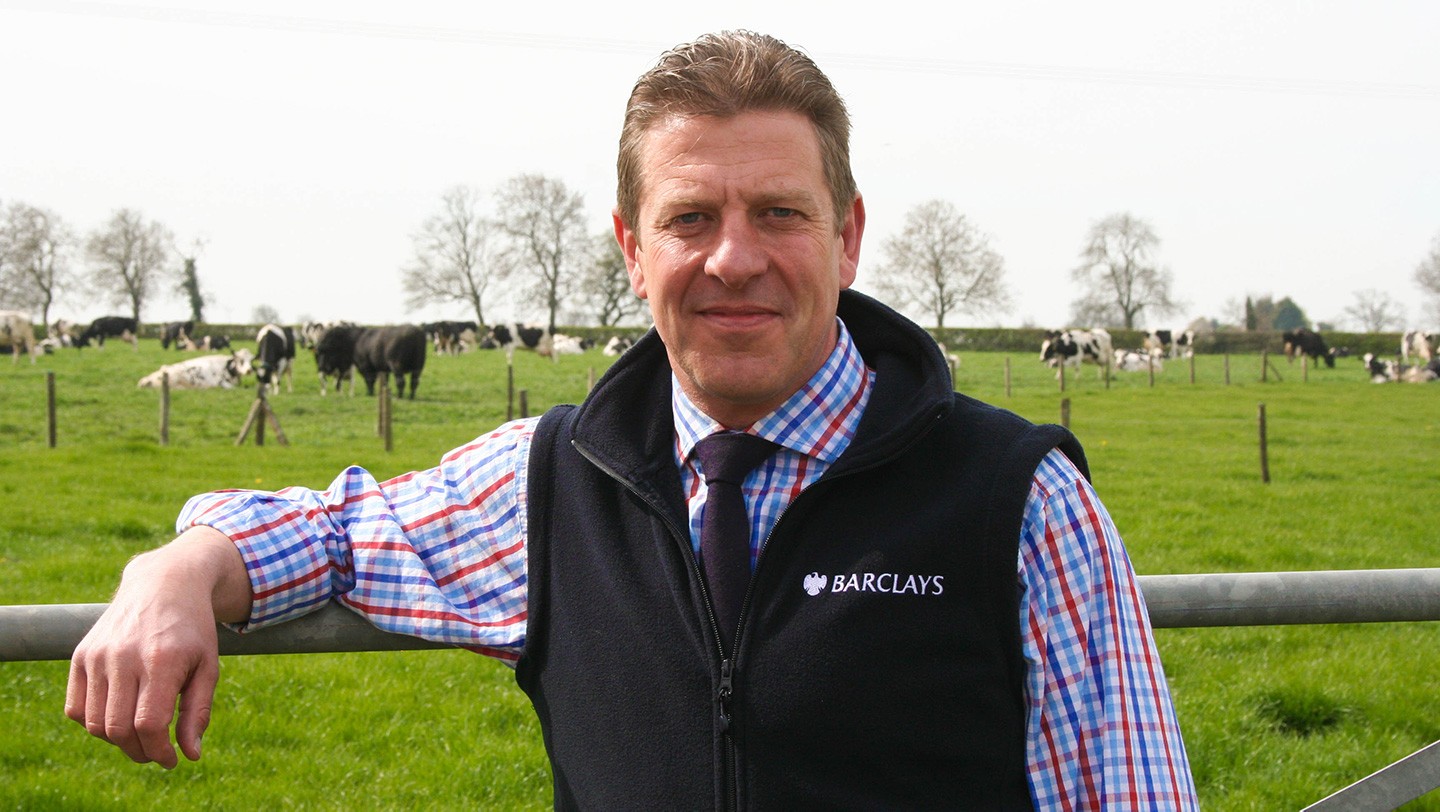
Our case studies
Just some of the ways we’re helping local businesses through this period and beyond.

Impact
In unprecedented circumstances for the industry, Barclays is helping the UK agricultural sector to stay resilient. We hear from Mark Suthern, National Head of Agriculture, and Oliver McEntyre, National Agricultural Strategy Director, about the challenges facing the sector during the coronavirus pandemic – and why they’re confident in the strength of UK agriculture “in the face of adversity”.
The coronavirus pandemic has meant a whole range of unexpected challenges for UK agriculture, from a shortage of farm workers and the sudden disappearance of demand from cafes, restaurants and hotels, to supply chain issues and a decline in export markets.
Nationwide lockdown has also meant a loss of income from the diversified projects farmers rely on, whether it’s holiday cottages, bed and breakfast stays, farm shops or campsites.
At the same time, points out Mark Suthern, Barclays’ National Head of Agriculture, the sector is experiencing unprecedented demand for some produce, with early lockdown panic buying “really putting pressure on the whole food supply chain”.
It’s not just about how we can lend money – it’s also signposting farm businesses and rural businesses to some of the support and help that’s been launched by the government to combat the economic impact of coronavirus
National Agricultural Strategy Director
As bankers to more than 25% of UK agricultural businesses, Barclays plays an essential role in helping “maintain vibrant rural economies”, says Suthern. “Resilience for the agricultural sector during the pandemic is really important and here at Barclays we’re helping in a number of ways.”
“It’s not just about how we can lend money – it’s also signposting farm businesses and rural businesses to some of the support and help that’s been launched by the government to combat the economic impact of coronavirus,” adds Oliver McEntyre, Barclays’ National Agricultural Strategy Director.
At this unprecedented time, that includes providing the Coronavirus Business Interruption Loan (CBIL) and the Bounce Back Loan to clients, capital repayment holidays and free everyday banking for customers with a turnover of up to £250,000.
Helping farmers navigate the coronavirus pandemic
McEntyre has over 30 years of experience in farming. He says changes in the hospitality industry as restaurants, coffee shops and hotels close their doors indefinitely have had a major impact on agriculture – especially for those involved in dairy.
“Estimates are that anywhere between nine million and 16 million litres a week of milk goes to the food service – so coffee shops, hotels and restaurants. It’s been a real challenge trying to find new markets for that and trying to divert that into supermarkets and grocery stores.”
Meanwhile, demand for other types of produce is skyrocketing, says Suthern. “If we look at supply into the retail sector, what we are seeing is that for a number of our farmers, their turnover is up at sort of pre-Christmas levels, particularly for fresh produce.
We're really focused on the wellness of our clients and we spend a lot of time proactively phoning around, having conversations with them just to check in and make sure that they're okay
National Head of Agriculture
“It’s fantastic to see the way that UK agriculture has responded so positively.”
Suthern welcomes the government’s Pick For Britain announcement that furloughed workers are being encouraged to help fill labour shortages on farms and work as fruit and vegetable pickers – a job which requires 70,000 seasonal staff a year.
“Getting people to work on the land and to be in a position to help farm and grow produce is a real challenge,” he says. “It’s great to see that furloughed people in other jobs are going to be allowed the opportunity to work on farms and create a real army of people to bring in the crops. I think there will be a real shift as people begin to see working in agriculture as an opportunity to have a new career.”
Suthern, who leads a team of over 130 agricultural relationship managers supporting farmers across the UK, says that Barclays is “in a unique position” to help clients diversify their businesses through avenues such as agri-tech or renewable energy production.
“When we look at agri-tech, we work very closely with a number of academic institutions and our colleagues in the Eagle Labs to share best knowledge,” says Suthern – expertise and networks that can support farmers keen to innovate and find new income streams.
Client mental health and wellbeing is another key priority for the bank during the pandemic, he says: “We're really focused on the wellness of our clients and we spend a lot of time proactively phoning around, having conversations with them just to check in and make sure that they're okay. It's really important that in a time of real, peculiar social change, we are there to talk to them on the end of the phone.”
Farming beyond the pandemic
Barclays has been supporting UK agriculture since 1744 – a 280-year period that has “huge change and huge challenges too,” says McEntyre.
Reflecting on the major disruptions that the agricultural sector has overcome in the last 30 years, he cites crises including outbreaks of foot and mouth disease, Aujeszky’s disease, swine flu, bird flu, and the floods that have hit swathes of the country, most recently last winter.
“Compared to those, coronavirus is actually having a more minor effect at the moment and there is a good demand for food,” he says. “We’ve got some supply chain issues and potentially labour issues, but on the whole, agriculture is functioning really well in the face of adversity.”
McEntyre says he hopes the crisis leads to some changes in attitudes towards agriculture – as well as making the sector more resilient. “What I hope lies ahead for the UK farming sector is greater understanding and appreciation by the UK public of the amazing job farmers do in producing real, good quality, traceable food we can trust.
“If we can build some better food security across the UK, that would be excellent – for example, quick ways of getting that milk onto supermarket shelves. If we can have some more collaboration and transparency in the supply chain, that would be fantastic.”
Reflecting on how the sector might look post-lockdown, he says: “We’re going to see a lot of innovation in the next five to 10 years, of that there is no doubt. What lockdown has taught us is that all those travel holidays and events are really important to all of us for our wellbeing, but actually food and water are the vital staples of life.”
Just some of the ways we’re helping local businesses through this period and beyond.
To access the CBI’s coronavirus hub for businesses, visit here.
To access the LEPs coronavirus hub, visit here.
To access the Royal Agricultural Benevolent Institution, visit here.
To access the RSABI, visit here.
To access the Addington Fund, visit here.
To access The Farming Community Network, visit here.

